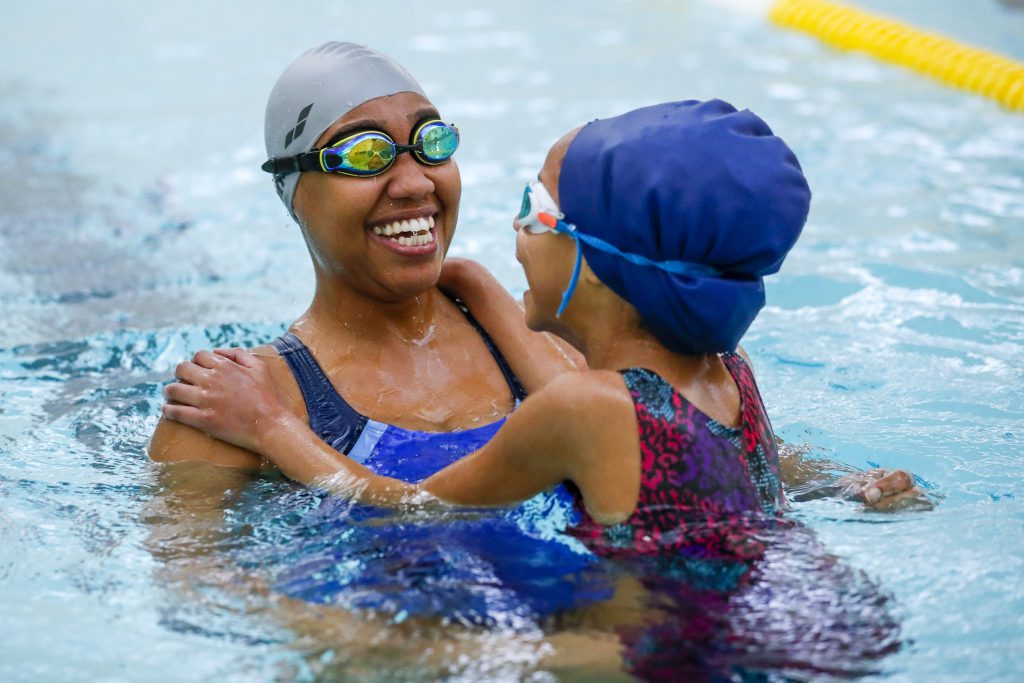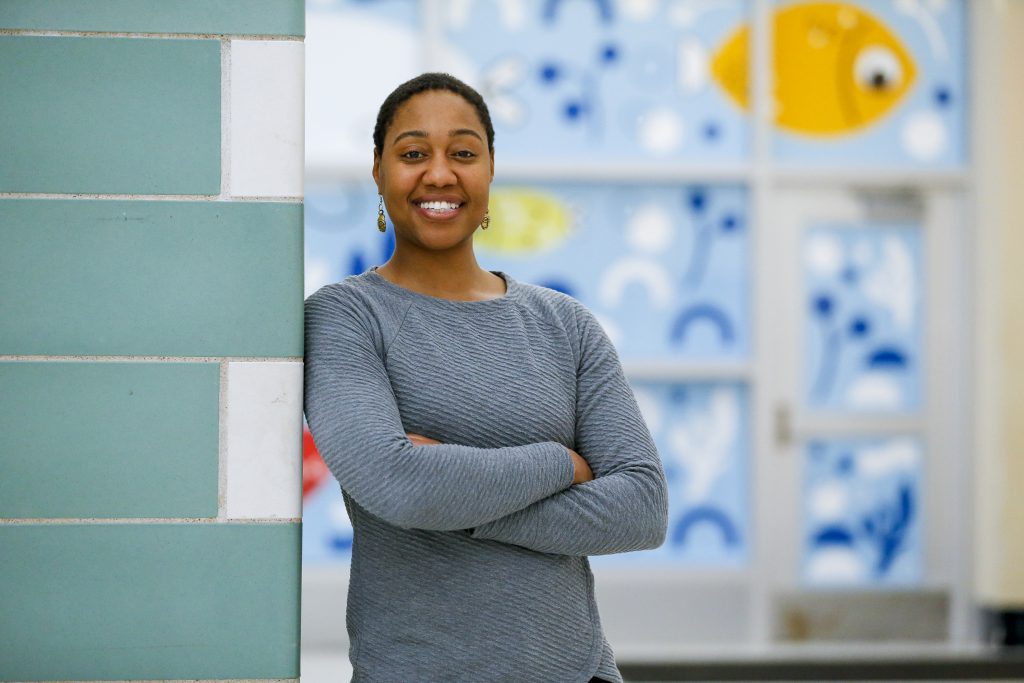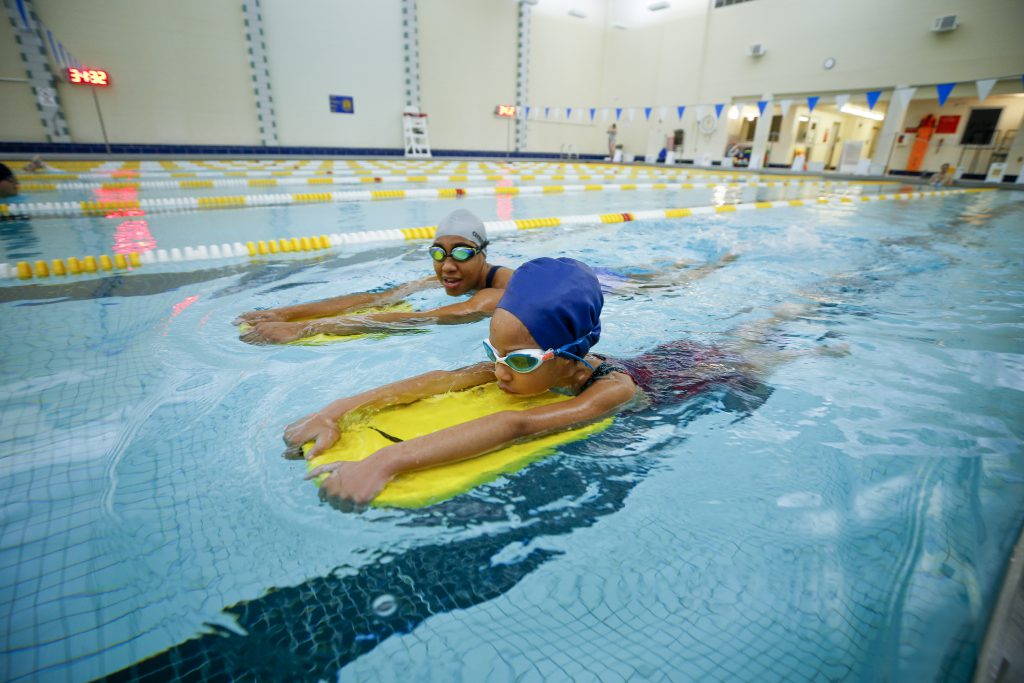Ayanna Rakhu was just a toddler when she looked up at the lifeguard at Minneapolis’ lake Bde Maka Ska and told her mom, “I want to do that!” Her mom listened, and Rakhu started swimming lessons when she was 6 before swimming competitively until age 12. She got her first job as a lifeguard at 16. And though she chose basketball as the sport she would play through college, her love of swimming has never waned.
“I have held several different positions in aquatics over the years,” says Rakhu, who is currently a PhD candidate at the University of Minnesota’s School of Kinesiology, as well as a certified USA Swimming Coach at Lifetime Athletic. Not surprisingly, her doctoral research is focused on swimming, specifically how to encourage African American mothers to swim, which would hopefully inspire their children to swim too.
“It wasn’t until I was pregnant with my daughter eight years ago that I noticed how few of my peers were spending time at the pool,” she recalls. “I started to understand that was a real issue, and a passion rose up in me to get African American moms and kids swimming.” Through her research project, “Mother May I Swim,” which is supported by the University’s Urban Research and Outreach-Engagement Center (UROC), Rakhu has been working to understand the reasons why many African American parents and their children don’t swim.
“UROC has been really supportive of my research both financially and through their mission of bringing research to the community,” she says. “That’s why I wanted to partner with them, and I see myself doing talks and workshops at UROC in the future.”
“We need to address the barriers to swimming so more people can enjoy it safely.” – Ayanna Rakhu
The information Rakhu and her research team have gathered will eventually be used to help develop a curriculum for teaching African American women and their families to swim. “I have collected a lot of data from African American mothers in the Twin Cities, and across the country, who have talked very openly about their swim experiences and their children’s experiences,” she explains. “The goal is to get parents and kids into the water and give them the confidence to swim safely. If parents aren’t onboard, it’s hard to get the kids to do something.”
Ultimately, Rakhu plans to create a swim school that is culturally relevant and trauma informed, meaning the curriculum and teaching style would focus on overcoming many of the barriers to swimming that African Americans face. Rakhu is also a recent recipient of the FINNOVATION fellowship. Supported by the Bush Foundation, the fellowship is an immersive program that supports social entrepreneurs with building skills and to develop their business ideas.
“Swimming is such a great way to maintain your health or come back from an injury; and knowing how to swim could save your life or your child’s life,” she says. “We need to address the barriers to swimming so more people can enjoy it safely.”
Click this video link to watch Ayanna further discuss her research
(Content originally created and shared by Urban Research and Outreach-Engagement Center)






